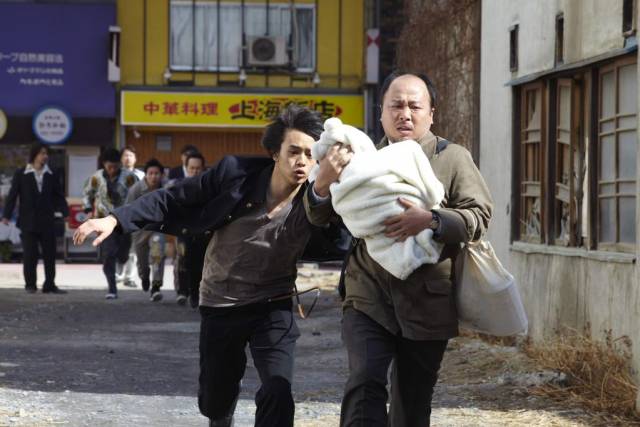
 Perhaps most famously championed by directors like the Coen Brothers, the lovable failure with a heart of gold has become so common in cinema that it could almost be considered a sub-genre. I Alone, directed by Sho Tsukikawa, plays into these conventions, tracing the unlikely bond between an aging accountant and a teenage misfit who are forced together when they accidentally kidnap the daughter of a local councilman. Stumbling through mishap after mishap, the two are eventually caught amidst a political scandal, and find themselves on the run from not only local law enforcement but also a Yakuza gang on the payroll of the town’s Mayor.
Perhaps most famously championed by directors like the Coen Brothers, the lovable failure with a heart of gold has become so common in cinema that it could almost be considered a sub-genre. I Alone, directed by Sho Tsukikawa, plays into these conventions, tracing the unlikely bond between an aging accountant and a teenage misfit who are forced together when they accidentally kidnap the daughter of a local councilman. Stumbling through mishap after mishap, the two are eventually caught amidst a political scandal, and find themselves on the run from not only local law enforcement but also a Yakuza gang on the payroll of the town’s Mayor.
One refreshing aspect of Tsukikawa’s style is that he is unafraid to experiment with forms. I Alone seamlessly blends genres, ranging anywhere from a crime thriller to comedic farce to a political drama, all culminating in a dynamic, high action ending. Contrasted to many of the highly exported Japanese filmmakers popular today, Tsukikawa is not a stylist. His direction is tight and restrained, allowing his camera to capture the action in an organic matter. This is beautifully depicted in the film’s conclusion, as an angry mob of protestors, unwittingly led by the film’s lead characters, storm City Hall. A major diversion in style, Tsukikawa utilizes long takes to capture the action in a single frame. Additionally, Tsukikawa’s choice to photograph the action side-on imbues the scene with quasi-video games aesthetic, while also recalling the famous, similarly depicted fight scene from 2003’s Old Boy. Throughout, it’s a style that is always justified by the content its depicting; a perfect blend of form and function.
If there is one aspect of I Alone that becomes a bit grating, it’s the films overt sentimentality. Tsukikawa transforms the 'style over genre' aspect of punk rock into an awkward metaphor for righteousness. For the film, punk means the confidence to always do the right thing. Yet, the film overplays this theme, it becomes almost a borderline cautionary tale. It's not that the characters aren't likeable or even believable, but that their actions are driven less by plot than by symbolic aspects loosely supported by the narrative. Tsukikawa thinly plots both main characters’ back-stories, but consistently refers to them as a source of narrative justification. With a more reliance on the developing action, I Alone could have been a far more effective film.